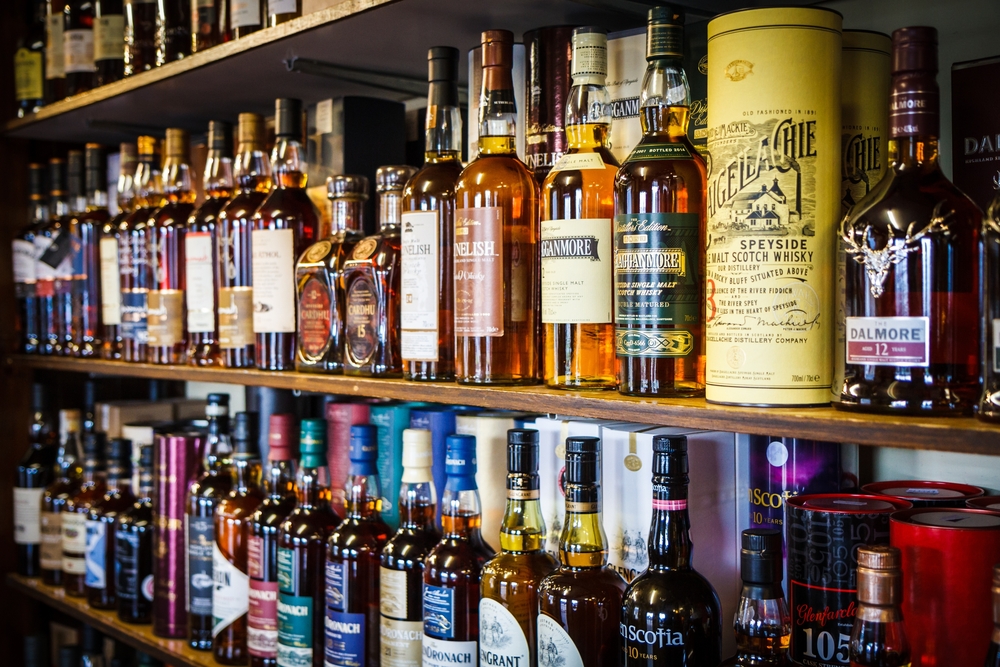SLTA Market Review shows Brexit impact on food & drink sector with 17% of outlets already seeing a loss and 65% expecting issues with staff
The Scottish Licensed Trade Association today releases its Christmas/New Year On-trade Market Review, sponsored by KPMG UK, containing key insights on Scotland’s burgeoning food and drink sector and the BREXIT impact. Some key points from this were:
- 17% of hospitality outlets in Scotland have already seen a negative impact from BREXIT – less bookings, loss of staff
- 40% of outlets anticipate the loss of staff
- 65% expect wider staffing issues to continue
- Generally there is a significant increase in outlets showing growth – 48% are in growth versus 39% at end of 2017, and 28% at end of 2016.
Colin Wilkinson, Managing Director of the SLTA, said: “Our survey, which covers all types of licensed premises, is an indicator of the key challenges facing the wide range of small to large businesses who trade within the wider hospitality sector.
Our survey is based upon quantitative research from 500 outlets covering the length and breadth of the country and is supported by many of the major chains and our partners in the Scottish Bartenders Network. After a number of years of decline, our summer report indicated a recovering market and this trend has continued over the festive period, with 69% of outlets either growing or stable at Christmas versus 59% for the whole of 2018.
“Amongst the key drivers of the performance were locally sourced gins and beers, whilst our industry also benefitted from embracing digital trends. With recent research indicating 71% of foreign tourists visit Scotland’s pubs and bars, we are proud of our continuing support for Scotland’s Food and Drink 2030 Ambition.
However, there are concerns, particularly around BREXIT and in rural outlets, where pubs are critical to the community, and key employers. Within rural/ countryside pubs over 20% are in serious decline. Our members are also concerned about BREXIT, with 40% anticipating losing staff with whom they have invested in training and 17% already seeing negative impacts.
Looking forward, we anticipate a continued recovery in 2019 with the growth being led by food, online bookings and locally sourced gins and beers.’’
The report is the latest annual review from the SLTA and provides key insights on food and drink performance directly from front line retailers across city centre locations and rural locations. The sponsors of the survey are KPMG, and Alistair McAlinden, Head of Hospitality & Leisure for KPMG LLP in Scotland, commented “It is heartening to see continuing signs of growth in the sector and particularly that Christmas trading appears to have been positive. Clearly, trading conditions remain very challenging for out-of-town operators.
Unsurprisingly, Brexit has been cited as a key challenge, with associated staffing-related considerations of most concern. Whilst uncertainty persists, it remains unsettling for business owners and employees alike. In order to provide necessary practical support to staff and to minimise potential disruption, operators should seek to understand options for employees and the possible cost implications. Business advisors can provide crucial support in this regard.
Notwithstanding Brexit concerns, cautious optimism is continuing to build amongst operators, with two-thirds of respondents indicating they expect stability or growth during the year ahead. To achieve this, a focus on the customer experience; relevance and variety of offering; and digital capability will remain key factors during 2019 and beyond.”
Wilkinson further added: “The SLTA has been the voice of the licensed trade in Scotland since 1880, and this report demonstrates our ambition for retailers to work with manufacturers and brand owners by sharing the front line key insights which our retailers are uniquely able to provide to manufacturers and wholesalers.”
EXECUTIVE SUMMARY
- RETAIL HEADLINES
- There is a significant increase in outlets showing growth – 48% are in growth versus 39% at end of 2017, and 28% at end of 2016.
- However, this is tempered by 1 in 7 in serious decline (over 10%)
- Christmas trading looks positive versus the full year trend. 69% of outlets were either growing or stable at Xmas, versus 59% for the calendar year 2018.
- Rural outlets continue to face the biggest challenges with 21% in major decline, and none showing major increases. A slight positive is that 50% were stable at Christmas.
- CATEGORY PERFORMANCES
- Independent/craft beer was a clear winner at Christmas with 84% of stockists reporting category growth or stability, and the number of outlets stocking independent/craft beer has increased to 80% from 65% in previous years.
- Outlets who have tapped into the demand for craft spirits and beers out-performed the market.
- MACRO-ECONOMIC CHALLENGES
- Consistently over the years, retailers see government legislation both national & local as the biggest challenge facing their business.
- BREXIT will be a significant challenge
- 40% of outlets anticipate the loss of staff with whom they have invested in training.
- 65% expect wider staffing issues.
- 17% have already seen a negative impact from BREXIT – less bookings, loss of staff.
- OUTLOOK
- There is increased optimism amongst retailers. At the end of 2018, 59% were growing or stable and the equivalent expected figure for 2019 is 66%
- The growth areas are expected to be online bookings, food, locally sourced craft gin and beer. Conversely the biggest decline is expected in mainstream beer and lager (46% of respondents expecting a decline).

